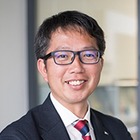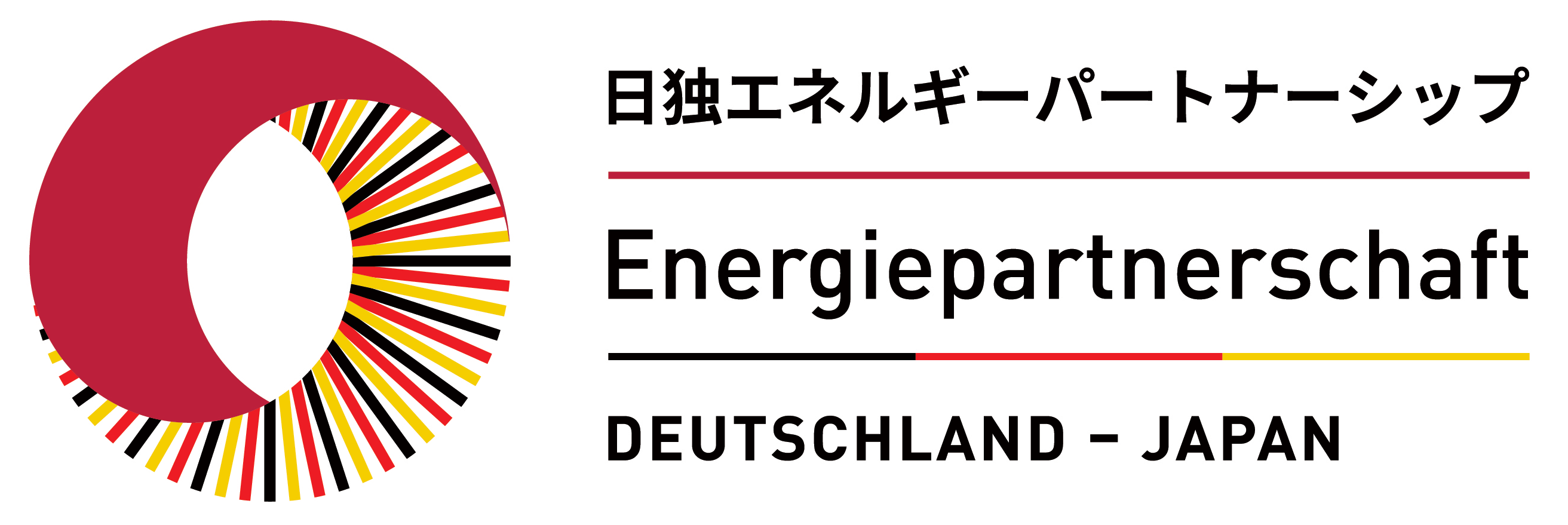The workshop that took place on 22nd of May in Tokyo focused on exploring strategies to enhance public acceptance of wind energy projects in Japan and Germany. The event aimed to facilitate open dialogue, knowledge dissemination, and community engagement to address the challenges faced by both countries in achieving their renewable energy goals.
In his introductory words, Marcus Schürmann, CEO and Delegate of the German Industry and Commerce, AHK Japan, emphasized the importance of public acceptance as an outcome of open dialogue and appreciating the values of all stakeholders involved in wind energy projects. He highlighted the clean and abundant nature of wind energy and stressed the need for cooperation among stakeholders, including prefectures, cities, municipalities, industry, and academia. Mr. Schürmann emphasized that by listening to community concerns and prioritizing their well-being, wind energy projects can be designed to gain support and trust from the communities they serve.
Subsequently, Jana Narita, Senior Manager, Japanese-German Energy Partnership Team, adelphi, emphasized the significance of both offshore and onshore wind for the energy transition in both countries and acknowledged that there are different reasons for resistance to wind power projects that need to be addressed. She expressed the importance of inspiring conversations and presentations during the workshop to advance the understanding and acceptance of wind energy.
Current Developments in German and Japanese Wind Energy Policy
Anton Hufnagl, Deputy Head of Division, General Issues of Bilateral Climate and Energy Cooperation, BMWK, discussed Germany's ambitious goals for wind energy expansion and the challenges of public acceptance. He highlighted Germany's transparent approach of specifying targets for different technologies and ranking them regionally to increase overall acceptance. Mr. Hufnagl also mentioned the significance of onshore wind energy in Germany due to the limited coastline and emphasized the importance of public participation and understanding to address community resistance.
Further important aspects were:
- Low public acceptance of nuclear energy after Fukushima incident in Germany, therefore phaseout that was finalized in 2023.
- Wide support for energy transition in German society with 92% who consider it as important.
- Heavy industries that require energy are generally far away from the coast, therefore grid expansion is required; if possible generating renewable energy close to customers is more cost-efficient.
- Public acceptance for offshore wind farms in Germany is greater than for onshore wind farms because the former are further from residential areas and have less impact on the scenery.
- It is important to explain transparently what steps are carried out in the designation of areas for wind energy.
- So far there are still few storage capacities in Germany because they are very expensive. One alternative is to have a good mix of energy sources, for example wind energy is quite stable, especially offshore wind. In addition, electric vehicles as short-term storage solutions and hydrogen as long-term storage solutions will become more important in the future.
Keisuke Muto, Deputy Director, New and Renewable Energy, Division Energy Efficiency and Renewable Energy Department, Agency for Natural Resources and Energy, METI, discussed Japan's goals to reduce greenhouse gas emissions and promote offshore wind power projects. Mr. Muto outlined Japan's targets for wind energy introduction and highlighted the country's potential for large-scale floating offshore wind power projects. He also mentioned the government's investment support and technological development initiatives.
Further important aspects were:
- The newly announced GX (Green Transformation) is a major transformation of the entire Japanese economy and society.
- The government will provide upfront investment of JPY 20 trillion to realize public and private GX investments of over JPY 150 trillion to finance among other objectives the energy transition.
- The Japanese government has set targets for introducing offshore wind power of 10 GW by 2030 and 30-45 GW by 2040 and a cost target of 8-9 JPY/KWh to be reached in the time period from 2030-2035.
- METI will promote large-scale floating offshore wind power projects to exploit Japans great offshore wind potential with the sixth largest EEZ in the world.
- Technological developments and demonstration in the area are accelerated through the Green Innovation Fund.
Public Acceptance of Wind Energy Projects in Germany and Japan
Irina Rau, Researcher, IZES Institute, presented an overview of the challenges, lessons learned, and possible solutions for public acceptance of wind energy projects in Germany. Ms. Rau discussed the acceptance triangle, which includes socio-political forces, community acceptance, and the market, as interdependent factors. She highlighted the various acceptance factors and emphasized the importance of perceived fairness in the process and satisfaction with financial participation for fostering acceptance.
Further notable aspects were:
- Delays in installation of plants due to lawsuits is a challenge, processes must be accelerated.
- There are many different acceptance factors: understanding of necessity, place identity, risk perception, negative impacts on health, nature and environment, distributive, procedural and interpersonal justice, cost-benefit assessment, opportunities for participation, etc.
- Subjectively perceived value creation significantly influences local acceptance, depends on the tone of reporting and to some extent on objective value creation.
Memi Motosu, Ph.D., Associate Professor, University Nagoya, discussed the specific challenges faced by wind energy projects in Japan, such as landscape concerns, wind turbine noise, and environmental impacts and effects on fisheries. Ms. Motosu highlighted the importance of effective communication and distributive justice, by demonstrating benefits to the community and fishery, and addressing concerns related to construction processes for improving public acceptance.
Further notable aspects were:
- Survey results suggest that wind turbine noise (especially low frequency noise) is perceivable in neighborhoods and therefore an issue for acceptance.
- Further environmental acceptance issues include bird strike, migratory bird flight routes, deforestation, induced disasters, marine ecosystem.
Panel Discussion: Insights into the Implementation of Wind Projects in Japan
Moderator: Kaoru Saito, Japanese Wind Industry Association
Panelists:
- Takashi Matsunobu, Floating Offshore Wind Engineering Department, Civil Engineering Supervisory Division, Toda Corporation
- Akihiro Sando, Senior Researcher, Renewable Energy Institute
- Yuji Mitsutake, CO-CEO, Port & Harbor Bureau, Kitakyushu City
- Togo Uchida, Executive Director, ICLEI Japan
The panel discussion featured experts with various backgrounds who discussed topics such as hosting community contact and interaction, fisheries concerns, remuneration systems, and environmental impacts. They shared insights and best practices from their respective experiences and highlighted the importance of building trust, engaging stakeholders, and addressing local concerns for successful wind energy project implementation.
Further aspects and takeaways from the discussion were:
- An example for a community that started engagement with local businesses and shareholders at a very early level in Japan is Kitakyushu city.
- Global climate change must be addressed more on the local level, not only on the national and international level, since implementation happens locally and consequences are also felt locally.
- In Japan, fisheries cooperatives have formed to major groups with different interests, which makes it challenging to build a consensus among all fisheries, making efforts to engage with influential individuals all the more important.
- Fisheries are impacted in different ways in different locations to differing fish variety and stocks that react differently to wind farms.
- A project to better understand the impact of floating offshore wind turbines on fisheries is being designed.
- It remains to some extent uncertain how regional employment is impacted by the development of wind energy, however, with the expectation that it will have rather beneficial effects.
- The environmental impact, cost, and perception of wind turbines in the landscape are other important aspects to consider. The SDGs can help to identify and think about risks and relevant factors in the development of wind power.
A Regional Perspective from Japan and Best Practices from Germany
Akihiro Sando, Senior Researcher, Renewable Energy Institute, focused on offshore wind projects from a regional perspective. He shared experiences from Noshiro City in Akita prefecture and emphasized the need for better predictability of local authorities, building up human resources and establishing clear rules in the offshore wind development process. Mr. Sando further highlighted the importance of economic development and addressing specific regional challenges.
Wiebke Heider, Moderator, and Mediator, Energiewende Mediation, emphasized the importance of establishing trust and effective communication between participants in mediation processes. Ms. Heider discussed the challenges faced by planners and investing companies in citizen participation and highlighted the need to address the "Participation Paradox", which states that citizens have only limited opportunities to participate in decision-making processes, greater influence during the early stages of regional planning, however, less influence at an advanced stage when it is most needed. She also highlighted the role of media in communicating the urgency of the energy transition to the broader public.
Moderated Group Discussions
As the final stage of the workshop, moderated group discussions on three distinct topics took place. The participants decided on a group in advance, being able to choose between "Financial Participation", "Citizen Participation and Conflict Facilitation" and " Social Acceptance of Zero-Carbon Energy Systems". During one hour of facilitated discussions participants were invited to exchange views, discuss and learn from each other regarding the three topics. This format provided an interactive character to the workshop, allowing participants to go beyond absorbing input from panelists and speakers and instead share their knowledge and experience. The format proved itself as well received and successful.
To conclude, the workshop provided valuable insights into the challenges and strategies for increasing public acceptance of wind energy projects in Japan and Germany. It emphasized the importance of open dialogue, community engagement, and addressing country- and region-specific concerns for successful implementation. The presentations and discussions contributed to a better understanding of the factors influencing public acceptance and provided best practices for fostering support and trust in wind energy projects.


